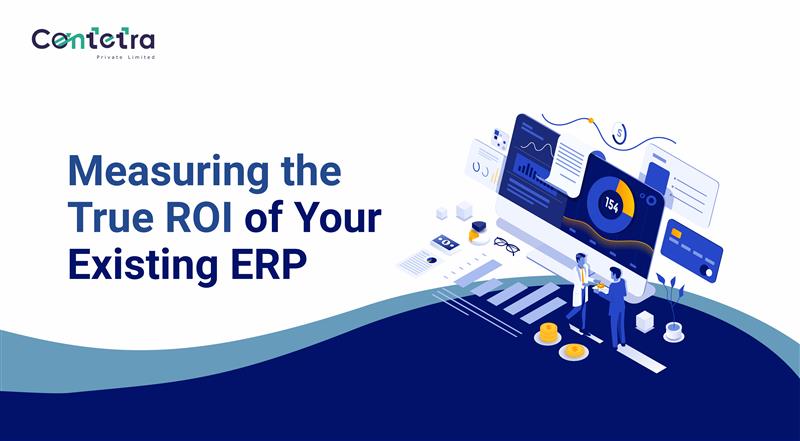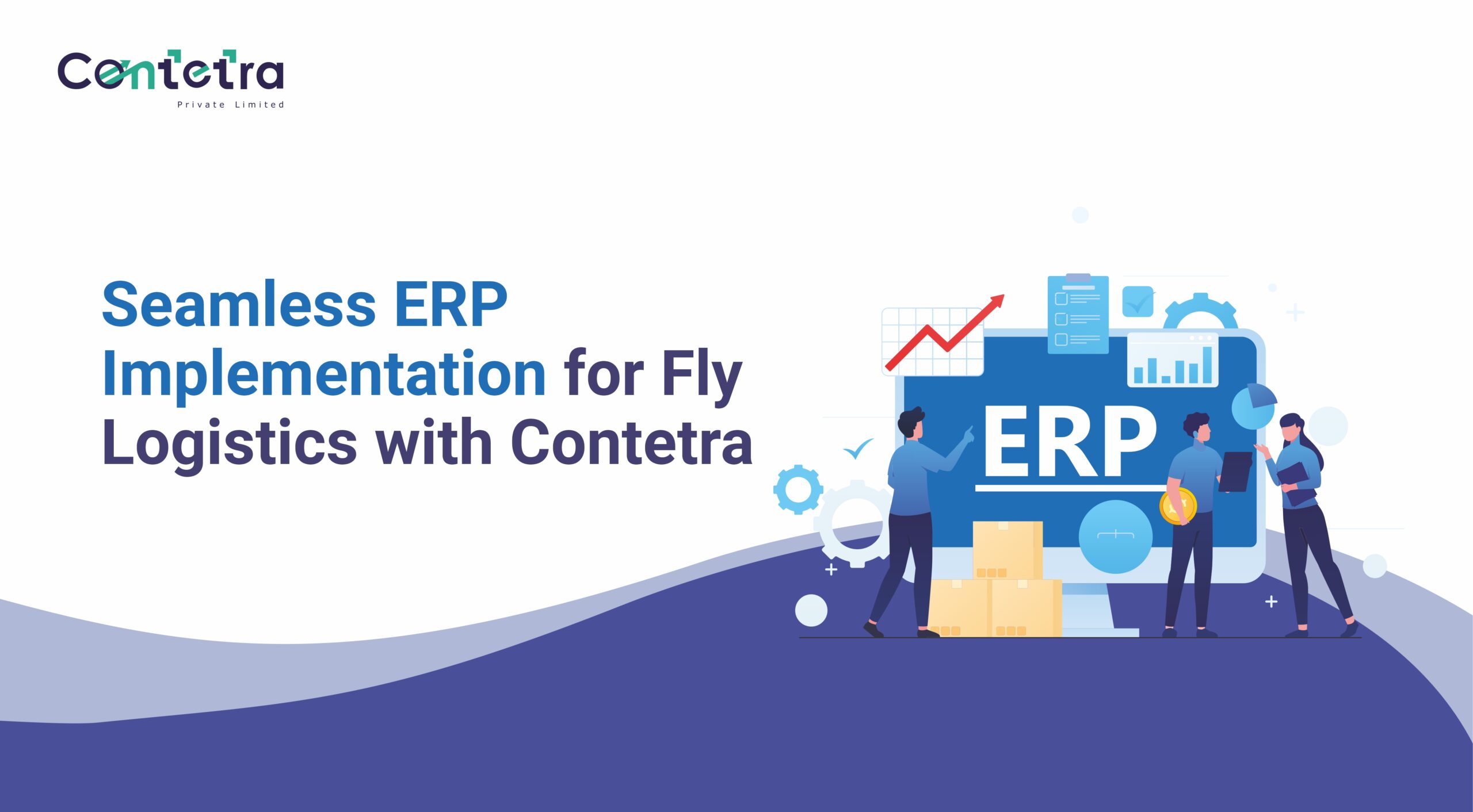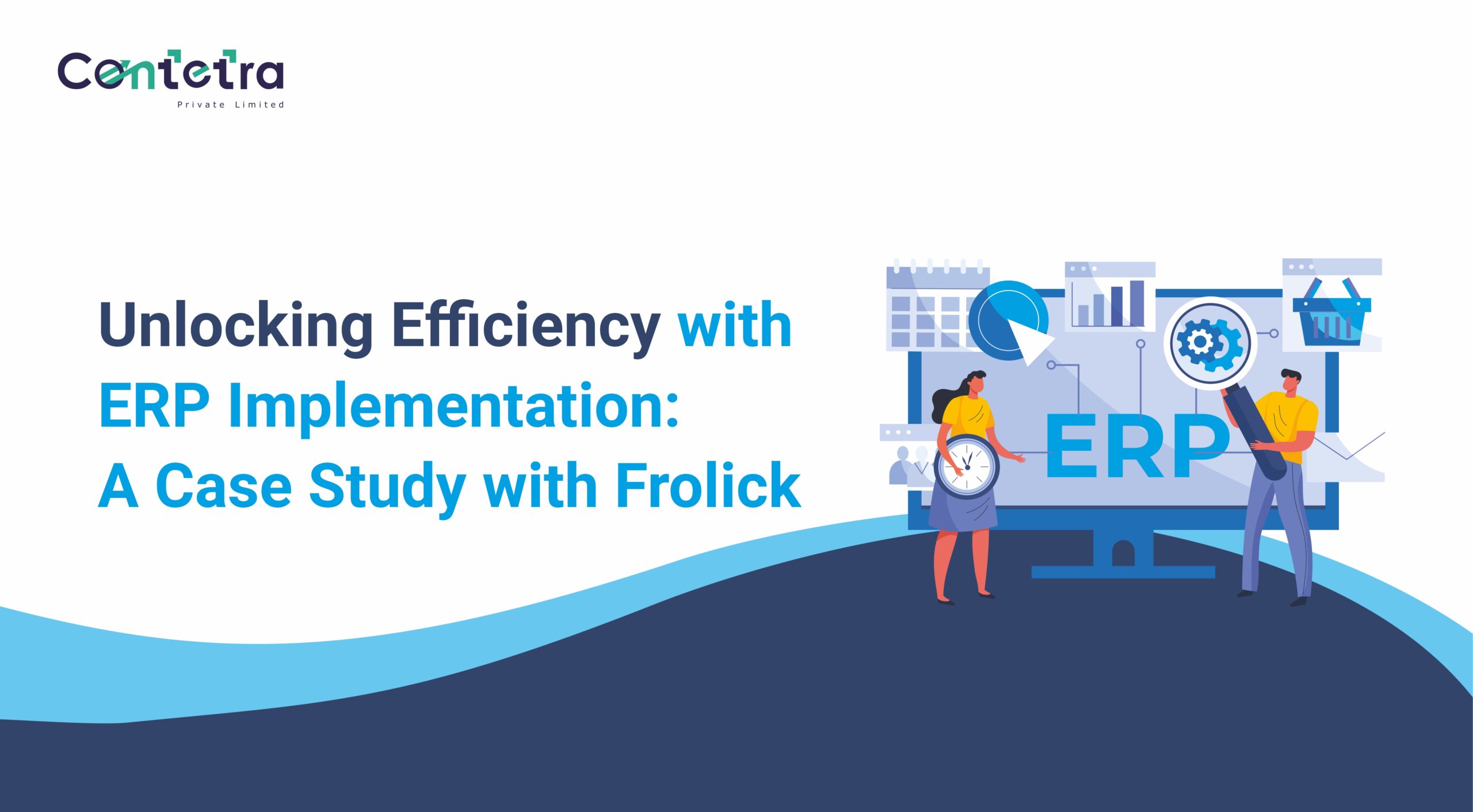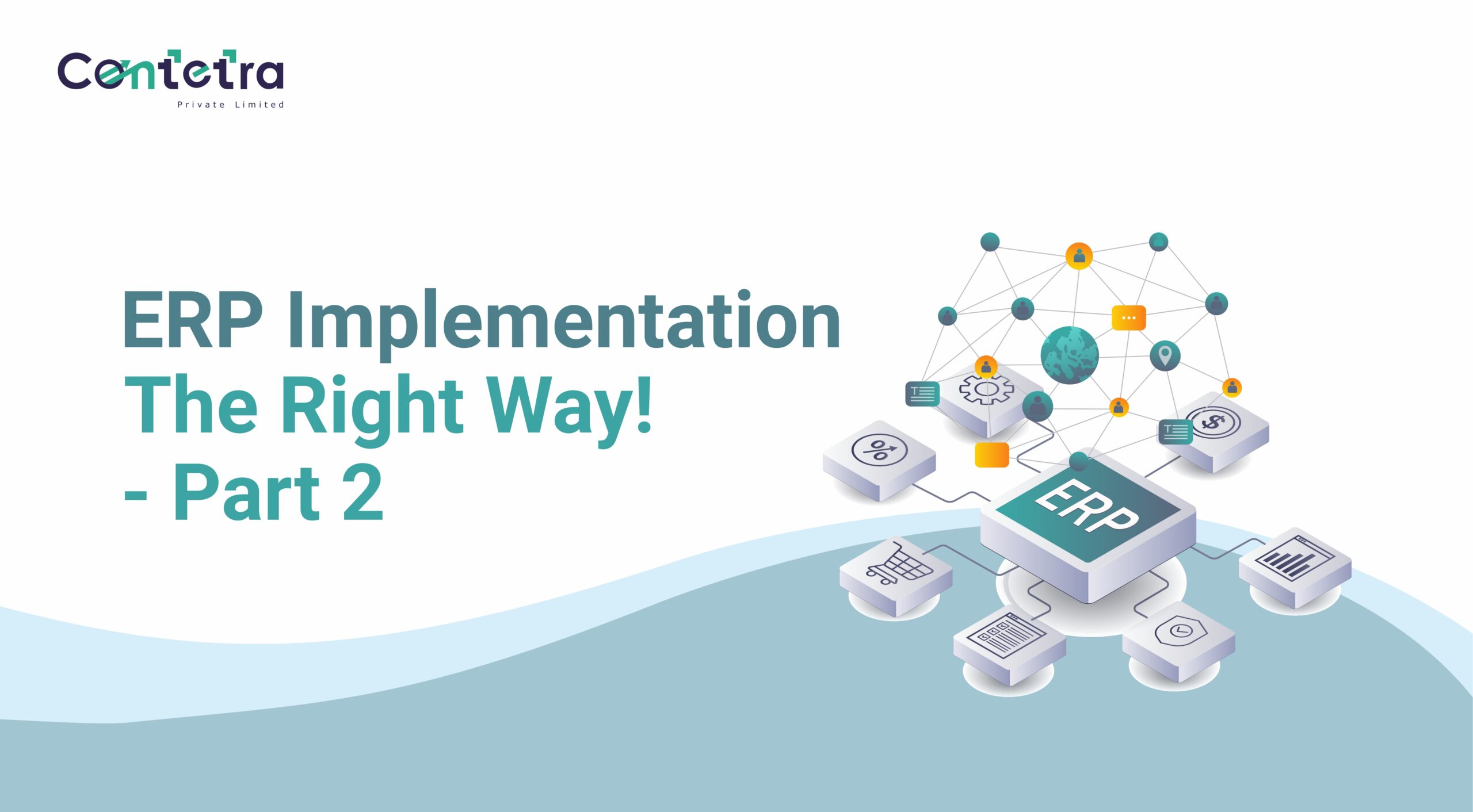Measuring the True ROI of Your Existing ERP
In today’s fast-paced business environment, organizations invest heavily in Enterprise Resource Planning (ERP) systems to streamline operations, improve productivity, and boost profitability. However, many businesses overlook one critical question: Is my ERP system truly delivering a positive return on investment (ROI)?
An ERP functional consultant plays a key role in assessing the effectiveness of your ERP system, identifying inefficiencies, and ensuring it aligns with your business goals. Understanding the true ROI of your ERP system is essential for making informed decisions about its continued use, potential upgrades, or even its replacement. At Contetra, we’ve helped businesses uncover hidden inefficiencies in their ERP systems, align processes, and drive real results. Let’s explore the key areas to measure and maximize your ERP’s ROI
What is ERP ROI?
ERP ROI refers to the tangible and intangible benefits your business gains from using an ERP system relative to the total cost of its implementation and ongoing maintenance. A positive ROI indicates that the benefits derived from the ERP system outweigh its costs, while a negative ROI suggests that your ERP system may not be providing enough value to justify its investment.
Key Metrics for Measuring ERP ROI
To effectively measure ERP ROI, it’s crucial to define key metrics that reflect your system’s performance across various areas. These metrics can vary depending on your business, but here are the key ones to consider:
- Cost Savings: ERP systems help reduce operational costs by automating manual processes, minimizing errors, and optimizing resource allocation—especially in administration, supply chain, and customer service.
- Revenue Growth: By improving customer satisfaction, speeding up order processing, and enhancing sales and marketing efforts, ERP systems can contribute to increased revenue through better customer engagement and inventory management.
- Operational Efficiency: ERP systems streamline workflows, reduce process cycle times, and enhance collaboration, leading to faster decision-making and reduced operational overhead.
- Inventory and Supply Chain Optimization: ERP systems improve inventory management by providing real-time data, reducing stockouts or overstocking, and optimizing inventory turnover. This reduces warehousing costs and minimizes losses.
- Customer Satisfaction: Enhanced order accuracy, shorter lead times, and improved service quality lead to better customer satisfaction and retention, playing a significant role in ROI, even if harder to quantify.
- Employee Productivity: ERP systems boost productivity by automating repetitive tasks, facilitating quicker data access, and improving cross-department collaboration. This reduces staffing needs and human errors.
Key Areas to Focus On
To measure the true ROI of your ERP system, focus on these key areas, quantifying their impact to unlock full value:
- Integration: Ensure seamless integration between your ERP, CRM, and timesheet systems. This can eliminate manual data entry, reducing errors by up to 30% and enhancing decision-making. For example, CRM integration can improve customer order accuracy and reduce costly mistakes, leading to better customer retention and increased revenue.
- BOM Accuracy: Maintaining an accurate Bill of Materials (BOM) can significantly reduce inventory issues. Inaccurate BOMs can cause 10-20% overstocking or stockouts, impacting production schedules. By keeping BOM data updated, businesses have saved up to 20% on procurement costs, streamlining inventory management and boosting profitability.
- Manual Processes: Automate manual workflows, such as approvals or reporting, within your ERP. This can lead to productivity improvements of up to 80%, as one client reduced their expense approval turnaround time by this percentage. Automating processes eliminates bottlenecks, reduces delays, and frees up time for more strategic initiatives.
- Reporting: Ensure your ERP system generates accurate, real-time reports for better decision-making. With proper reporting, companies have seen improvements in decision-making speed by 30-40%, allowing for more agile responses to market changes and growth opportunities.
Collaborating with an experienced ERP functional consultant can help you focus on these areas more effectively. An ERP functional consulting professional works closely with your team to identify pain points, streamline processes, and ensure that your ERP system aligns with your business goals.
using on key product segments identified during the analysis, Vinca was able to boost sales in their most profitable areas.
- Motivated Sales Team: We introduced a Sales Incentive Mechanism that aligned individual performance with business goals. This not only drove revenue but also created a motivated, high-performing sales team.
- Streamlined Processes: New systems and structures were set up to track key metrics like sales performance, hiring targets, and team contributions. These tools made operations more efficient and less dependent on manual effort.
One of the biggest wins was the transformation in the owner’s mindset. With clarity on the numbers and confidence in the processes, they were able to focus on strategy instead of firefighting operational issues.
Ongoing Evaluation: Benchmarking and Long-Term Assessment
Measuring ROI shouldn’t be a one-time exercise. Regularly benchmarking your ERP system’s performance against industry standards and competitors can provide valuable insights into areas for improvement. In addition, evaluating ROI periodically (e.g., annually or bi-annually) will help you understand the long-term benefits of your ERP system, especially as it evolves with your organization.
Maximizing ROI with Contetra
At Contetra, we go beyond ERP implementation. Our focus is on aligning your ERP with your business processes to deliver measurable results. From accurate data migration to seamless reconciliation, we ensure your ERP system works for you—not the other way around.
By leveraging the expertise of our ERP functional consulting services, we’ll help you:
- Identify inefficiencies in your ERP system.
- Streamline integration with other critical tools.
- Optimize workflows to save time and reduce costs.
- Generate actionable insights through enhanced reporting capabilities.
If you’re unsure about your ERP’s ROI, let’s talk. Sometimes, small adjustments can lead to significant gains.
Take the First Step
Measuring the true ROI of your ERP system is essential to ensuring that your investment is paying off. By focusing on both tangible and intangible benefits—such as cost savings, revenue growth, operational efficiency, and improved employee satisfaction—you can gain a comprehensive understanding of the value your ERP provides.
Remember that ROI isn’t just about short-term gains; it’s about long-term strategic impact. So, take the time to evaluate your ERP system carefully, and use the insights gained to make data-driven decisions that drive your business forward.
Is your ERP system living up to its potential? Conduct a comprehensive ROI assessment today and unlock the full value of your investment.














